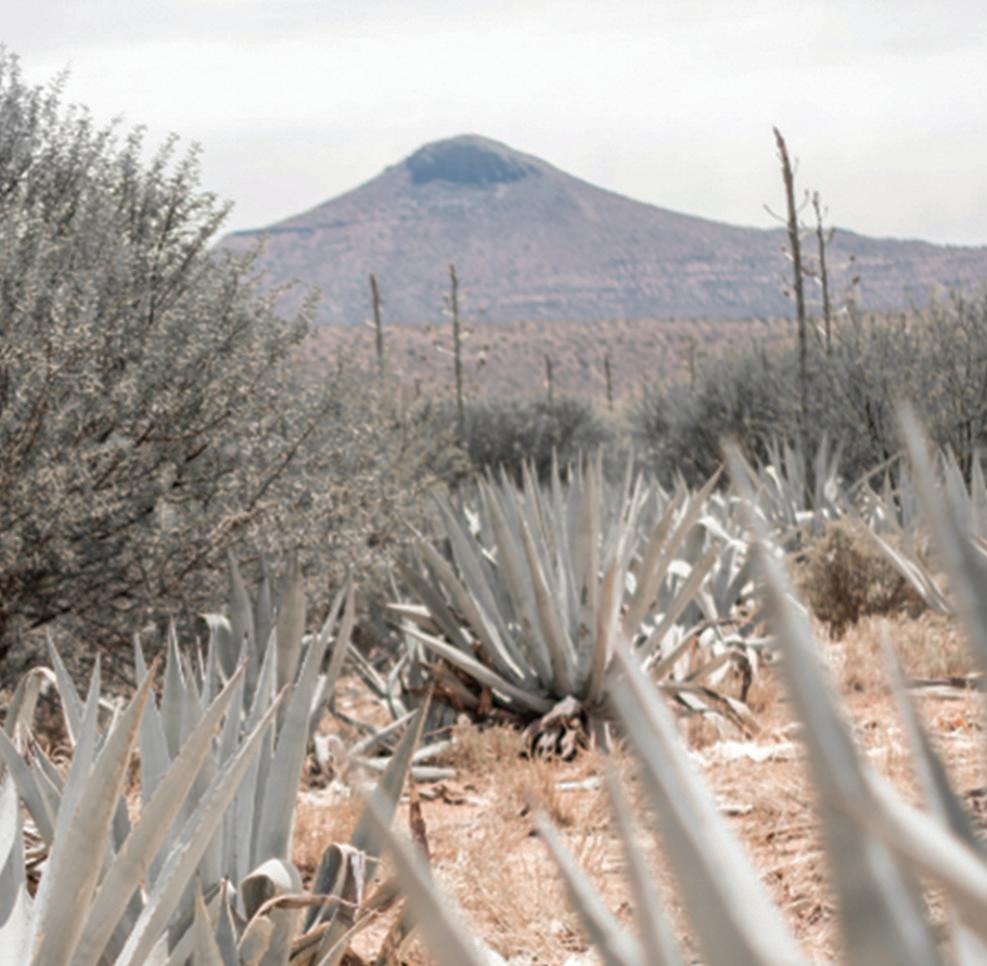
4 minute read
CLIFF ROBERTS EXPLORES A
Fire-water of the
CAMDEBOO
Advertisement
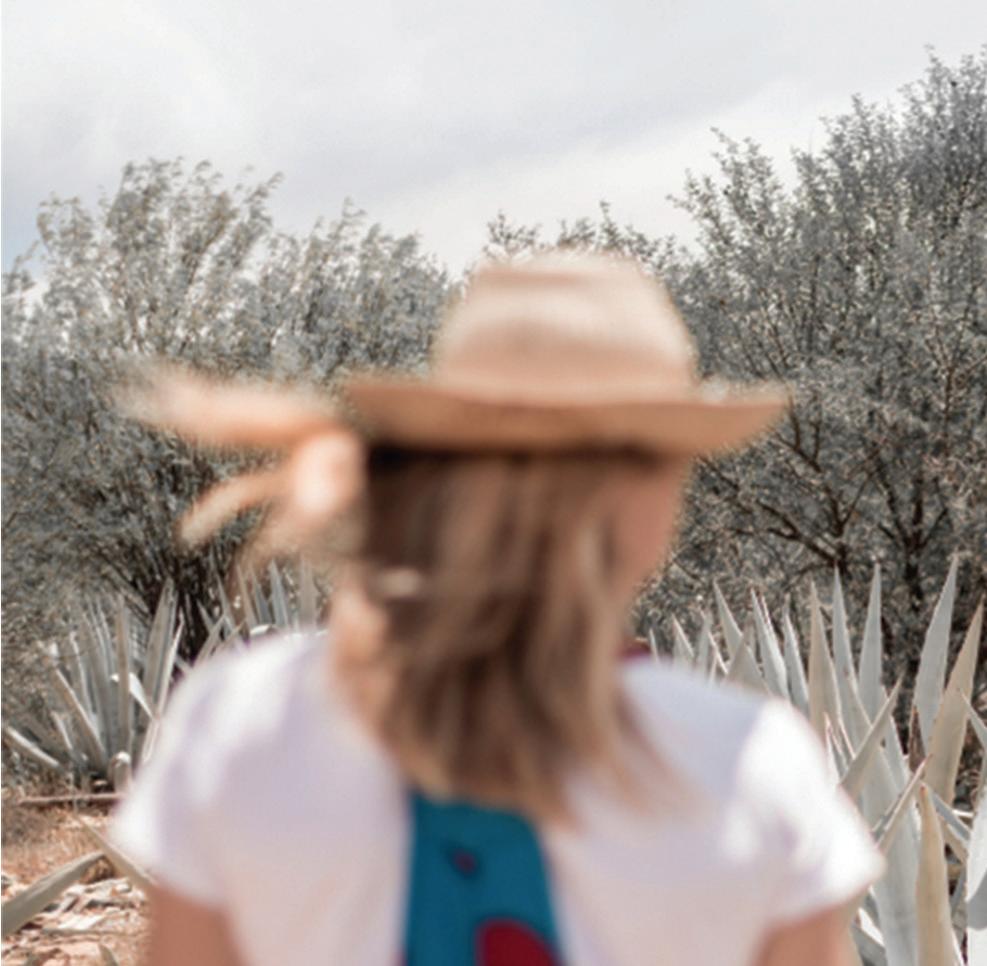
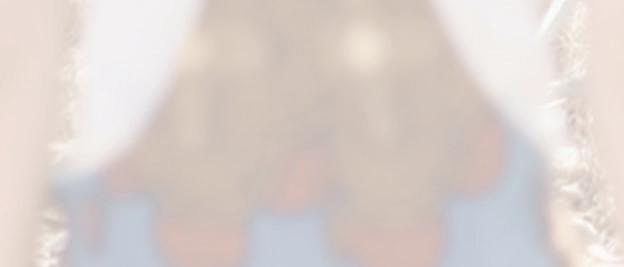

Would you believe a very large amount if not most of South Africa’s tequilalike agave spirit is made in the town of Ventersdorp? e spiritual heartland of the beverage, however, is an eight-hour drive south—to Graa -Reinet in the Karoo. is is where the agave plant has been farmed for generations, initially as fodder during droughts and also to prevent soil erosion, but since the 1990s for spirit production too. Over the years, plants from this area have been used by a variety of agave spirit brands including Hope Distillery’s Esperanza Agave, Swartland winemaker Adi Badenhorst’s 4th Rabbit and the Van Doesburgh Distillery’s Agava.
Most prominent these days is the partnership between Sarah Kennan’s Leonista and farmer Tim Murray. e Murrays have been in the area for

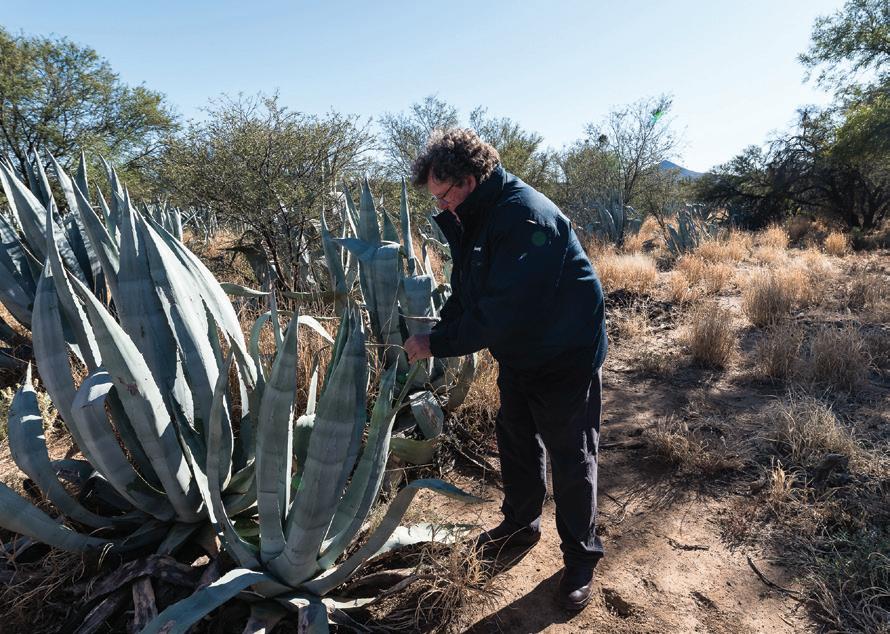
Discover South Africa’s own tequila-making agave plantations
BY CLIFFORD ROBERTS
generations; Tim was the rst in his line to plant agave to supply spirit-makers. Some 120ha of his 5000ha onion seedand-cattle farming land is devoted to the succulent and, importantly, the distilling-friendly variety agave americana linnaeus. e result has made Tim’s farm Roode Bloem a magnet for attention—from distillers shing for advice to curious tourists. Tim quickly got organised and now o ers guided tours. His tasting shoot-out between tequilas and local equivalents includes his own brand, ree Agaves. A layman would have di culty distinguishing between the local stu and the real thing.
Getting to the plantation couldn’t be more tequila-esque. Just 10km out of town, at the end of several interlinking gravel roads, the large old farmhouse still feels remote. Most days, it’s hot and dry. When it’s not, temperatures o en plummet to below zero. Even more grizzly, the spiky blue-grey agaves share their dusty space with aggressive thorn trees. It’s a long, long way from gentle vineyards and wheat elds. e spirit that emerges, however, is one-of-a-kind. Its history goes back to South America but today, international producers take their lead from Mexico’s world-famous tequila. As in Mexico, harvest of the agaves at Roode Bloem Farm involves the removal of the outer leaves of the plant to expose the heart, which resembles a giant pineapple— hence its Spanish name, piña. ese are then processed for the nal spirit, whose production emulates that of mezcal and tequila. e latter are both made from agave varieties too. To qualify as tequila however, only speci c varieties are permitted by law. Both styles also enjoy geographic naming protection by law.
In the case of tequila, production takes place in areas around the town from which it gets its name.
Piñas for tequila are typically steamed
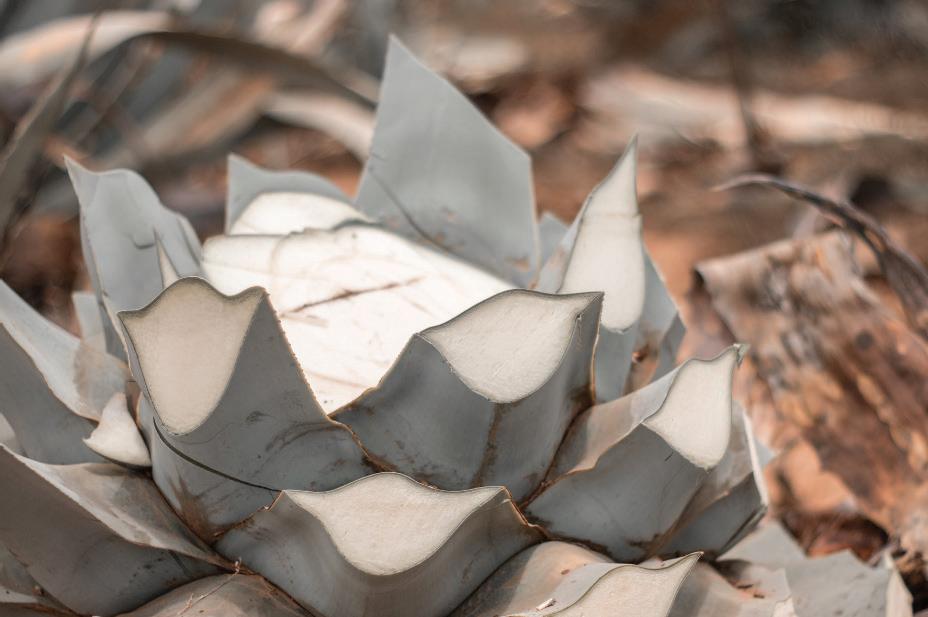
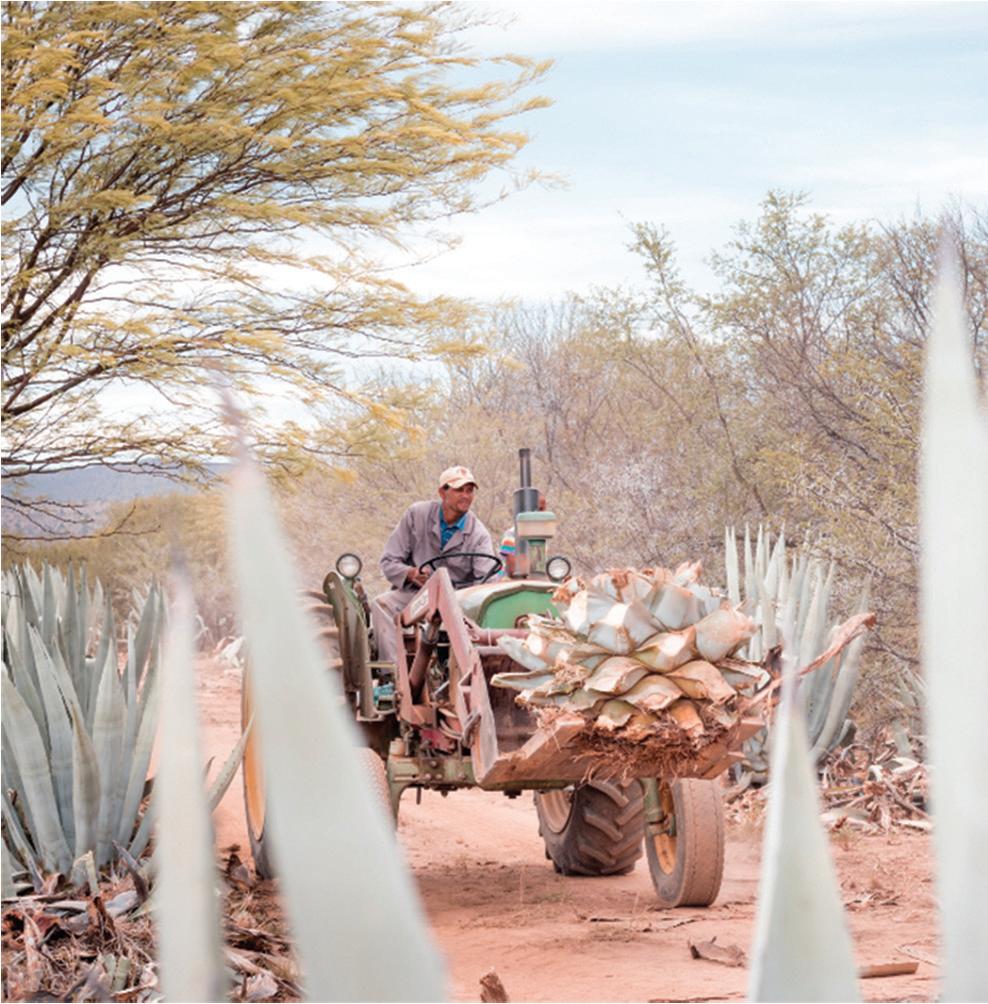
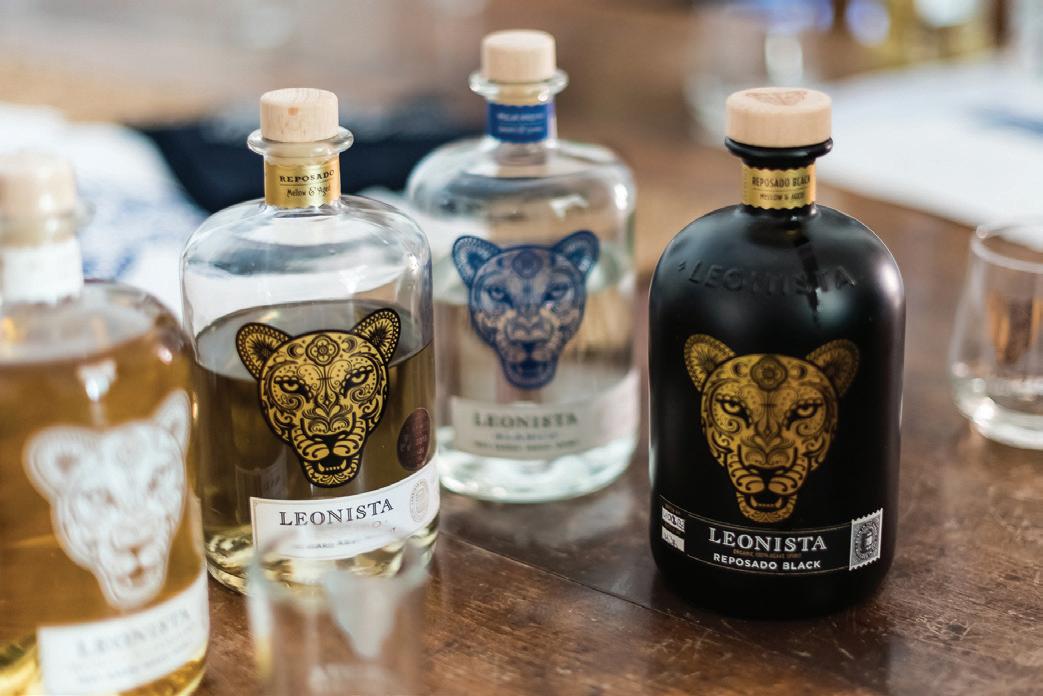
while mezcal is baked in wood or coal- red ovens. It’s the reason for mezcal’s smoky character, which is perceptible in Tim’s ree Agaves too. Once cooked, the piñas are crushed and their juices fermented and distilled.
Di erent categories of the drinks have been created by ageing them, but also by blending. Distillers are permitted to extend their stocks by adding other spirits to the agave spirit.
In the case of tequilas, those made with 100% agave spirit will undoubtedly declare as much on the label and command a premium price. ose tequilas that don’t have such a statement, may be assumed to be a “mixto”, although regulations still require them to have a minimum of 51% agave.
When it comes to tasting, white spirits in general and particularly tequila or equivalents o en have an additional handicap. Many newcomers turn them down because they’re seen as overly strong. In truth, almost all spirits in South Africa are the same strength: they’re all bottled at a legislated 43% alcohol.
At this level, it is accepted that spirits can still be tasted when blended with a mix —the most popular way of local consumption. is is especially important to remember when sampling them neat or comparing them in a line-up. In these cases, it’s generally best to add a splash of water. Dilution reduces the brashness of the drink and allows for better discernment of its aromas and avours.
For Tim Murray, it’s also the best way to enjoy South African agave spirit—as a “sipping drink”.
AGAVE EXPERIENCE
TEQUILA MASTERCLASS AND AGAVE TOUR
Book an AirBnB Tequila Masterclass and Agave Experience where you meet Tim Murray, the farmer of the incredibly diverse and majestic agave plant. Tim has a wealth of knowledge and abundance of stories to share. You’ll walk through the plantation learning all there is to know followed by a tasting of six di erent agave spirits, both local and international and end everything o with a cocktail expertly blended with ree Agaves Silver Agave Spirit. Prices for the experience are R250 per person. www.airbnb.com/experiences/1437810 STAY: Roode Bloem Farm House fromR200pp for the rst two people, therea er R80pp. www.rb .business.site PURCHASE: ree Agaves Silver, Pure Karoo Agave Spirit, R350 from www.threeagaves. karooheart.co.za Leonista, 100% Karoo Agave Spirit, from R445 from www.leonista.co.za











